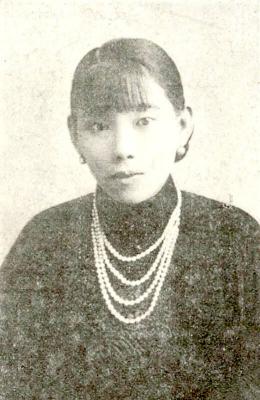About two-thirds of the way into the ridiculously satisfying new Star Trek movie, there comes a brief shot of the crew on the bridge of the Federation Starship Enterprise. The film has been picking up familiar names as it goes, but you suddenly realize with a jolt that everyone, at last, is here: young, hopeful versions of Captain James T. Kirk (Chris Pine) and Mr Spock (Zachary Quinto), communications officer Uhura (Zoe Saldana) and pilot Sulu (John Cho), Bones (Karl Urban) and Chekhov (Anton Yelchin) and Scotty (Simon Pegg).
It’s a throwaway image, yet you feel the final pieces of the puzzle snap into place with a witty and intensely fond reverence. I just about wept with joy, and I’m not even a Trekkie.
Neither, apparently, is director J.J. Abrams, and that may have made the difference. Star Trek — aka Star Trek XI, aka Star Trek the Franchise Reboot — approaches the late Gene Roddenberry’s original science fiction world not on bended knee but with fresh eyes, a spring in its step, and the understanding that we know these people better than they know themselves. Indeed, much of the vast pleasure of this movie comes from characters suddenly discovering things about each other that we learned watching TV four decades ago. There are flaws to pick at in terms of story line and other matters, but that can wait until the glow has faded. In the pop high it delivers, this is the greatest prequel ever made.
Star Trek isn’t all fun and games. The universe has to be saved (again), and Spock has to undergo a personality crisis severe even by the standards of his half-human/half-Vulcan nature. A renegade Romulan named Captain Nero (played by Eric Bana with facial tattoos and a taste for waterboarding) has dropped in from decades into the future, and he’s very, very angry about something the older Spock has done, or will do. Nero’s first order of business is to attack a starship, in the process killing Kirk’s father (Chris Hemsworth) just as Mother Kirk (Jennifer Morrison) is giving birth to our hero in an escape shuttle.
Conceptually, this is a genius move: It establishes the entire movie as an alternate, parallel Star Trek universe in which Abrams and his screenwriters Roberto Orci and Alex Kurtzman can do as they wish, fanboys and the canon be damned. Kirk can grow up a rebellious hothead, only learning about his father through the paternal Captain Pike (Bruce Greenwood). Kirk and Spock can meet not on the bridge of the Enterprise but as clashing cadets in training school. (“Who was that pointy-eared bastard?,” Kirk mutters.) Spock can even have a simmering relationship with Uhura that occasionally involves long, steamy kisses. Heresy!
But it works. As the characters scramble to deal with the Romulan threat — the baddies want to destroy the Federation’s planets one by one, and they have the future tech to do it — their initial enmity is forged into camaraderie under heavy fire, and Abrams has a blast letting them get to know each other. Sulu and Kirk first connect while free-falling through space on their way to dismantling a Romulan megaweapon, and the ensuing fight with the enemy is outrageously choreographed, a ballet of high-impact fencing and brute force.
At the same time, Abrams respects the campy verities of the original show enough to include a third Enterprise crewmember on this mission — the guy I and my roommates used to call “Lunchmeat.” Remember him? The extra you’d never seen before who beamed down with the leads solely because someone needed to bite it? The script calls him “Olson” (Greg Ellis), but, trust me, he’s Lunchmeat, and the movie’s the better for his brief appearance and spectacular demise.
The editing, cinematography, and special effects work are state-of-the-art, as you’d expect — extra praise goes to an astonishingly detailed sound mix — but so are the same aspects of Wolverine, and that film’s a joyless bore by comparison. What lifts the Abrams film into the ether is the rightness of its casting and playing, from Saldana’s Uhuru, finally a major character after all these years, to Urban’s loyal, dyspeptic McCoy, to Simon Pegg’s grandly comic Scotty, the movie’s most radical reimagining of a Star Trek regular.
That said, the appearance of Winona Ryder as Spock’s human mother comes as a jolt, and in no known universe can I imagine Tyler Perry as a Federation elder. (Abrams is a fan, I guess.) Still, the movie’s center holds. The classic lines get trotted out — “Ah’m givin’ it all she’s goot, Cap’n,” “Dammit, man, I’m a doctor, not a physicist” — but the players bring an affection and depth to their parts that’s bigger than mere nostalgia; when they color outside the lines, it’s on purpose. And when Pine sits down in the captain’s chair with the exact macho sprawl William Shatner employed in the original series, you almost want to applaud.
Do you have to be a hard-core fan to enjoy the movie? Not at all. Star Trek has been knocking around for so long that the basics have seeped into the culture by osmosis. The director indulges himself with a monster that resembles his Cloverfield beastie, and there are in-jokes for followers of Lost and other Abrams projects, but he has made sure to tap into the longstanding emotion that surrounds the Trek mythos.
Above all, he understands the potency and pleasure of the Kirk/Spock relationship. There are certain pop duos that have become cultural institutions and about whom it’s endlessly enjoyable to speculate. Who wouldn’t want to have been there when Holmes met Watson or Butch met Sundance? (Or Oscar met Felix, or Jack Aubrey met Stephen Maturin; you could play this game forever.) Pine makes a fine, brash boy Kirk, but Quinto’s Spock is something special — an eerily calm figure freighted with a heavier sadness than Roddenberry’s original. The two ground each other and point toward all the stories yet to come.
Then, at a certain point, the movie’s curtains part and Leonard Nimoy appears, playing an older, wiser, more fragile Spock. You’re grateful for the continuity — his appearance carries much more emotion than you’d expect — and also thankful that this Star Trek stops there. One strutting ham of a Captain Kirk is enough, thanks.
The movie’s not perfect. The final battle feels awfully Star Wars — later Star Wars — as does Scotty’s sidekick, an Ewok knock-off in a lousy mask. Character, not plotting, is the film’s strong suit, yet plotting takes over in the final half hour. Emotionally, though, Star Trek hits every one of its marks, functioning as a family reunion that extends across decades, entertainment mediums, even blurring the line between audience and show. Trading on affections sustained over 40 years of popular culture, Star Trek does what a franchise reboot rarely does. It reminds us why we loved these characters in the first place.

Many people noticed the flood of pro-China propaganda across a number of venues in recent weeks that looks like a coordinated assault on US Taiwan policy. It does look like an effort intended to influence the US before the meeting between US President Donald Trump and Chinese dictator Xi Jinping (習近平) over the weekend. Jennifer Kavanagh’s piece in the New York Times in September appears to be the opening strike of the current campaign. She followed up last week in the Lowy Interpreter, blaming the US for causing the PRC to escalate in the Philippines and Taiwan, saying that as

Nov. 3 to Nov. 9 In 1925, 18-year-old Huang Chin-chuan (黃金川) penned the following words: “When will the day of women’s equal rights arrive, so that my talents won’t drift away in the eastern stream?” These were the closing lines to her poem “Female Student” (女學生), which expressed her unwillingness to be confined to traditional female roles and her desire to study and explore the world. Born to a wealthy family on Nov. 5, 1907, Huang was able to study in Japan — a rare privilege for women in her time — and even made a name for herself in the

This year’s Miss Universe in Thailand has been marred by ugly drama, with allegations of an insult to a beauty queen’s intellect, a walkout by pageant contestants and a tearful tantrum by the host. More than 120 women from across the world have gathered in Thailand, vying to be crowned Miss Universe in a contest considered one of the “big four” of global beauty pageants. But the runup has been dominated by the off-stage antics of the coiffed contestants and their Thai hosts, escalating into a feminist firestorm drawing the attention of Mexico’s president. On Tuesday, Mexican delegate Fatima Bosch staged a

Would you eat lab-grown chocolate? I requested a sample from California Cultured, a Sacramento-based company. Its chocolate, not yet commercially available, is made with techniques that have previously been used to synthesize other bioactive products like certain plant-derived pharmaceuticals for commercial sale. A few days later, it arrives. The morsel, barely bigger than a coffee bean, is supposed to be the flavor equivalent of a 70 percent to 80 percent dark chocolate. I tear open its sealed packet and a chocolatey aroma escapes — so far, so good. I pop it in my mouth. Slightly waxy and distinctly bitter, it boasts those bright,